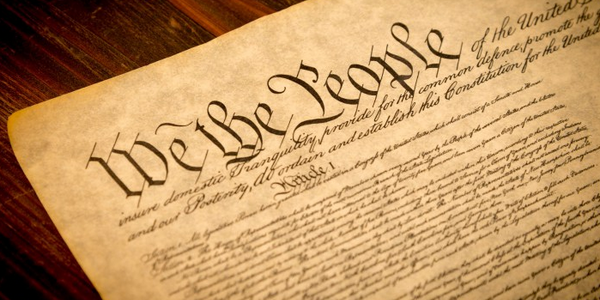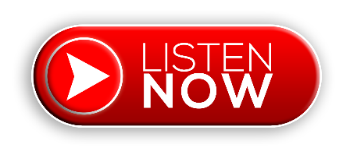Sept. 17 commemorates the adoption of Constitution of the United States and the people who are citizens of the country.
On this day in 1787 the the members of the U.S. Constitutional Convention signed the Constitution.
The 14th Amendment of that Constitution defines a citizen as “All persons born or naturalized in the United States, and subject to the jurisdiction thereof, are citizens of the United States and of the State wherein they reside.”
Test your Constitutional knowledge here:
1. Which of these famous phrases is found in the US Constitution?
| A. “With a firm reliance on the protection of divine providence, we mutually pledge to each other our lives, our fortunes and our sacred honor.” |
|
| B. “That government of the people, by the people, for the people, shall not perish from the earth.” |
|
| C. “We the people of the United States, in order to form a more perfect union…” |
|
| D. “We hold these truths to be self evident, that all men are created equal…” |
|
2. Which of the following states were NOT participants at the 1787 convention in Philadelphia when the Constitution was drafted?
| A. Maine |
|
| B. Vermont |
|
| C. Rhode Island |
|
| D. all of the above |
|
3. Who are “The Framers?”
| A. A 1960s rock band |
|
| B. A group of carpenters associated with Habitat for Humanity |
|
| C. A cabal of unscrupulous jailhouse snitches |
|
| D. Political leaders in 1787 who sought to improve on the ineffective Articles of Confederation by producing a new government framework featuring a more robust national governme |
|
4. Who is considered the “Father of the Constitution?”
| A. George Washington |
|
| B. Ray Charles |
|
| C. James Madison |
|
| D. J. Robert Oppenh |
|
5. Which of these Founding Fathers was NOT present for the drafting of the Constitution?
| A. Ben Franklin |
|
| B. George Washington |
|
| C. Thomas Jefferson |
|
| D. Alexander Ham |
|
6. The Constitution was ratified in 1788 and took effect in 1789. Two years later, in 1791, 10 amendments to the Constitution were adopted. What were the amendments called?
| A. The Decalogue |
|
| B. The US Code |
|
| C. The Bill of Rights |
|
| D. None of the above |
|
7. Why were the amendments deemed necessary?
| A. Some of the Founding Fathers were worried that the Constitution might lead to an imperial presidency. |
|
| B. To help empower the judiciary to effectively protect individual liberties. |
|
| C. To make clear that the national government would remain a government of limited powers and that those powers not specifically granted to the national government in the Constitution would be retained by the states and the people. |
|
| D. All of the above. |
|
8. When they were ratified, the first 10 amendments acted as a restraint on the national government. But in the years since almost all the amendments have been enforced against the states as well. It has been done by invoking rights laid down in the 14th Amendment. Which of the following rights are protected by the 14th Amendment?
| A. All persons in the US are entitled to the equal protection of the laws. |
|
| B. All persons born in the US are citizens of the US. |
|
| C. States may not deprive any person of life, liberty, or property without due process of law. |
|
| D. All of the above. |
|
9. Which of the following rights is NOT guaranteed under the First Amendment?
| A. The right to engage in religious worship. |
|
| B. The right to publish and distribute a newspaper critical of the government. |
|
| C. The right to be secure from unreasonable searches and seizures. |
|
| D. The right to engage in a public protest without government censorsh |
|
10. How many constitutional amendments have been ratified?
11. True or False – Judges who interpret the Constitution are engaging in a form of judicial activism?
12. What important role does the Constitution’s commerce clause play?
| A. It allows members of Congress to buy discounted souvenirs in the Capitol gift shop. |
|
| B. It ensures that no national lawmaker will ever be stopped and ticketed for speeding on an interstate highway. |
|
| C. It is the constitutional provision that authorizes much of the national legislation passed by Congress. |
|
| D. All of the above |
|
13. The commerce clause has been broadly interpreted to allow Congress to wield federal power in areas once considered the domain of states. Which one of the following areas exceeds constitutional limits on federal power under the commerce clause?
| A. Federal regulation of homegrown wheat for home consumption. |
|
| B. Federal criminal sanctions for possession and use of homegrown marijuana for personal consumption, despite a state law permitting use of marijuana for approved medical purposes. |
|
| C. Establishment of a federal gun-free zone around local schools without a requirement that the gun must first have traveled across state lines and involve a degree of economic activity. |
|
| D. Extension of federal civil rights laws barring racial discrimination against motel patrons in Atlanta on the theory that motel patrons travel |
|
14. In passing President Obama’s health-care reform law, Congress relied on its authority under the commerce clause to mandate that every American buy a government-approved level of health insurance. Several lawsuits challenge the measure’s constitutionality. Of the three federal judges who have issued rulings, how many have declared the reform measure unconstitutional?
15. Why are certain federal judges sometimes referred to as Article III judges?
| A. To qualify for a presidential appointment to the federal bench, prospective nominees must read three articles in the Harvard Law Review and pass a reading comprehension test. |
|
| B. It is easier than remembering their names. |
|
| C. Article III is the section of the Constitution establishing the third branch of government, the federal judiciary. |
|
| D. None of the |
|
How well did you do?
1. C
2. D
3. D
4. C
5. C
6. C
7. D
8. D
9. C
10. B
11. False
12. C
13. C
14. A
15. C




More Stories
Do you appreciate our work here at The Power Hour? Your support makes a difference!
The Power Hour is now on WBGS Radio – Saint Petersburg, FL
We are now on Substack!